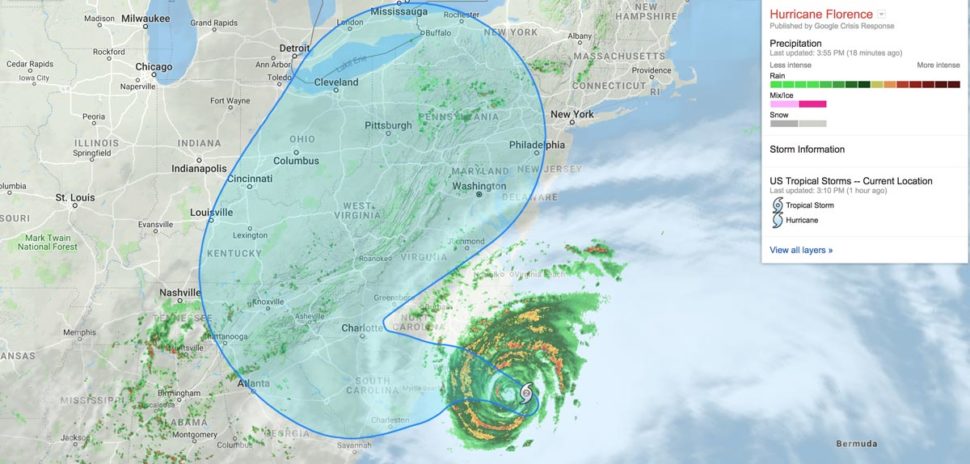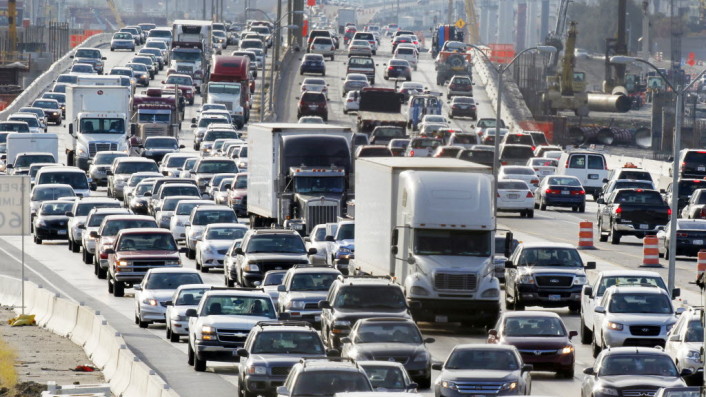The Effects of Hurricane Florence on the Trucking Industry
Examining the Economic Effects of Hurricane Florence
Hurricane Florence made landfall last weekend affecting numerous facets of everyday American life. The transportation and logistics industries are no exception, with Indiana (at this current published moment) being the only state allowing permitting for oversize and overweight vehicles traveling through the state for delivery of equipment, supplies, and workers to regions affected by the storm. As of September 14th (1:57 PM Eastern U.S. time), FEMA has released some updated stats about shelters, helpers and other critical forces weathering Florence’s fury today. A number of credible sources have pooled their own set of information about power outages. While many Americans need shelter and electricity, when it comes to rescue and recovery efforts, there is strength in numbers (as reported by CNN):
- 14,000 people spent the night in 205 Red Cross shelters in North Carolina, South Carolina, and Virginia
- 4,500 meals and snacks have been served by the Red Cross
- 40,000 electric workers from 17 states have been mobilized 4,000 National Guard soldiers and airmen are on duty
- 10 states are mobilizing National Guard support
- 40 rotary wing aircraft are available for search and rescue
- 3,000 flood-certified insurance adjusters are on standby
- American Red Cross has deployed 1,500 employees and volunteers, 80 emergency response vehicles, and more than 120 trailers of
equipment and supplies - 500 HHS medical personnel have been pre-positioned
- 507, 381 total customers without power in both North and South Carolinas

Understanding the Logistics of Disrupted Logistics

- Local incidents affecting roadways will delay last-mile/last-touch deliveries
- Nationwide problems due to states of emergencies declared in 13 states
- West Virginia, Florida & Georgia have issued executive orders easing weight restrictions for emergency related issues
- North Carolina issued a suspension of size & weight for a number of reasons
- On-demand software (i.e.: TruckHub) indicates a number of driver-to-driver delays
- With road closures and lack of communication from dispatch to on-site drivers, specific modes of transportation are delayed
Anatomy of a Hurricane
“The Federal Motor Carrier Safety Administration relaxed hours-of-service regulations in 13 states and the District of Columbia as Hurricane Florence made its way to the East Coast. The administrators at FMCSA’s Southern and Eastern Service Centers declared a state of emergency in Delaware, the District of Columbia, Florida, Georgia, Kentucky, Maryland, New Jersey, New York, North Carolina, Pennsylvania, South Carolina, Tennessee Virginia and West Virginia by 9/11.18.” Eleanor Lamb, staff writer at Transport Topics, further notes that even though “Hurricane Florence had been downgraded to a Category 2 storm” from a Category 4, millions of dollars worth of damaged occurred and lives were lost. As of September 17th, Indiana is allowing for special permits, allowing for limited modes of transportation to occur to the Carolinas (rescue and support based only) with “states of emergency declared and HOS relaxed in 13 states and the District of Columbia.” As for North Carolina, size and weight restrictions were issued, additional registration requirements, strict permit fees for overweight vehicles as well as general stricter local applicable laws. Fast forward two weeks and major in issues are still a concern with even some chaotic instances- “in South Carolina, one trucker had his tractor-trailer swallowed by a hole in the road created from floodwater erosion,” as reported by Jeremy Feucht at TruckStop. Check the video below to see some other related instances.
“TODAY’s Al Roker is in Studio 1A giving a closer examination of what Hurricane Florence looks like. “It’s a swirling counterclockwise mass of thunder storms building up,” Roker says. The width of the storm is about 350 miles, while the eye stretches about 30 miles. As for winds around the system, the eye will reach an average of 125 mph and outside will reach about 75 mph” as reported by NBC News.
Many are concerned that the current political situation (voter registration for the upcoming elections) will either bring about artificial concern and awareness on the Carolinas’ situation or that it will be rather placed on the back-burner; time will indicate the “interest” of helping those in affected areas. As per the FMCSA, “This emergency declaration is needed to address anticipated emergency conditions in the affected states and jurisdictions a need for immediate transportation of supplies, equipment, and personal and provides necessary relief.”
For more information, follow us each week for the latest transportation industry news or contact WHSEHub here.
Take control of your freight with an Asset-Based 3PL Warehousing Company
that can keep your cargo secure. Request a free quote today!
Watch our Podcast
Get a quote in minutes!

GUIDE TO AVOID UNNECESSARY FREIGHT CHARGES
This is the A-to-Z guide of accessorial charges... it includes an explanation of each fee, the standard industry rates, as well as tips on how to handle them like a pro.
Just enter in your email address and receive your FREE E-Book in minutes!
Recent Posts
- Top 8 Best Warehouses in Miami 08/27/2024
- Top 10 Top-Tier Bonded Warehouses in Miami 08/08/2024
- Essential Insights: All You Have To Know About Pharmaceutical Warehousing 08/01/2024
- E-Commerce Freight Forwarding: A Simple Overview 08/25/2023
- What Do You need to Know about Robotic Picking System Warehouse? 08/24/2023
- Cross-Docking vs. Warehousing: Navigating the Intricacies of Miami Logistics 08/18/2023
- The Future of Storage: How Modular Warehouses Can Help Business Operations? 08/15/2023
- Transloading vs. Cross-docking: Key Differences in Logistics 08/11/2023
- Transloading in Logistics: Understanding the Process and Meaning 08/11/2023
- The Key Differences between Warehouses and Fulfillment Centers in E-commerce 08/04/2023